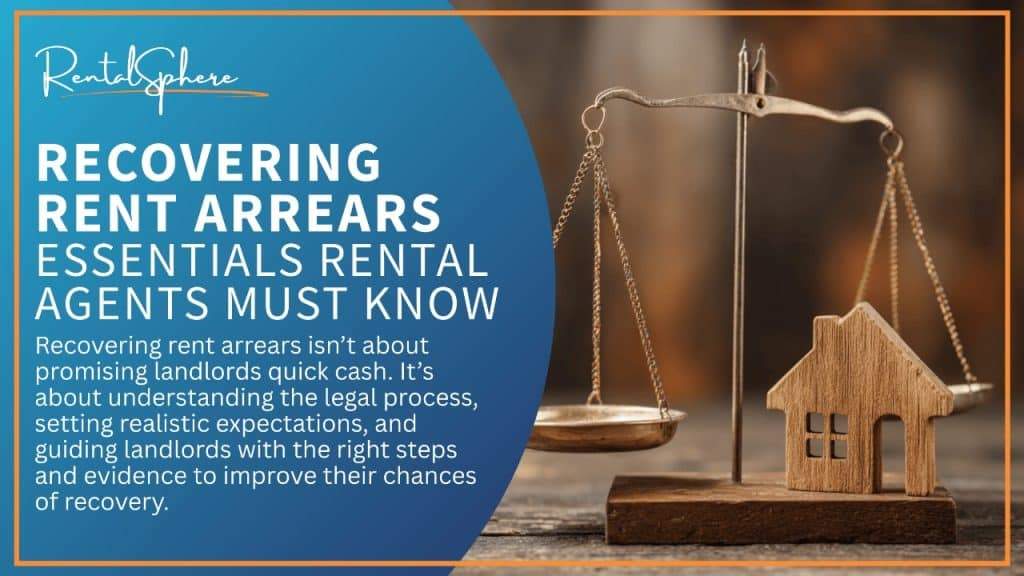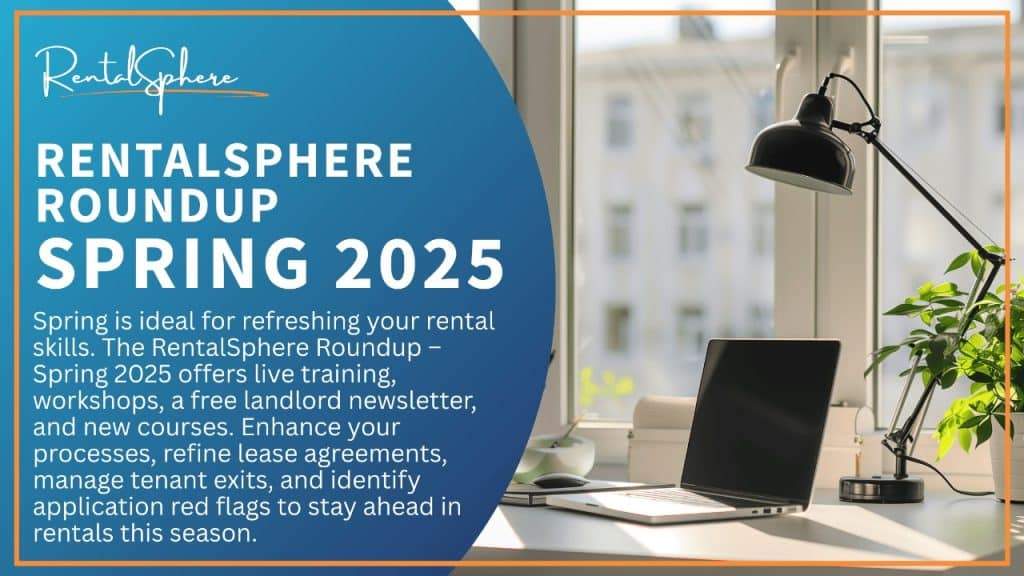Warning: Body Corporate Rules and Tenants – What Agents Must Know
Here’s a clear, practical guide for rental agents on how body corporate rules, lease and tenancies interact in South Africa.
This article is an extract from a super-informative Inner Circle Ep 2515 with
Johlene Wasserman,
Director at VDM Attorneys and sectional title expert.
📩 Get new articles delivered directly to your inbox
Join 2,400+ rental pros who get smarter with tips, guides, compliance updates & more delivered straight to their inbox.
Body Corporate Rules and Tenants in South Africa: Key Guidance
Agents often assume all body corporate rules bind tenants automatically. In practice, enforceable body corporate rules are those that are attached to the lease, align with applicable legislation, and have been approved and filed with CSOS.
What the Rental Housing Act Requires
Where the property is in a sectional title scheme, the full management and conduct rules must be attached to the lease. This is a requirement of the Rental Housing Act and ensures proper notice. These rules must also have been approved and filed with the Community Schemes Ombud Service (CSOS) to be legally enforceable.
Which Prevails? CSOS-Approved Rules Trump the Lease
There is a clear hierarchy: (1) applicable law, (2) CSOS-approved and registered scheme rules, then (3) the lease agreement. If a lease clause conflicts with valid, CSOS-approved body corporate rules, the rules prevail. The lease should therefore state expressly that the body corporate rules form part of the lease and mirror the obligations imposed by those rules.
Body Corporate Rules and Tenants: Examples of Non-Enforceable or Problematic Rules
Not every rule or request from a body corporate can be enforced against tenants or owners. As Johlene Wasserman explained in our Inner Circle session:
- Requests for lease copies: A lease is a private contract. The body corporate cannot demand a copy without a lawful basis. Where information is genuinely needed, provide only what the law requires (e.g. occupant details) rather than the full lease.
- Shifting common-property liabilities onto landlords: Attempts to push responsibility for common-property issues (e.g. inter-unit water leaks, shared pipes) to landlords are not enforceable if the rules and law place those duties on the scheme/BC.
- Owners made liable for BC repairs: Owners can’t be made liable for repairs that, in terms of approved rules/insurance/common-property definitions, fall to the BC (e.g. geysers or riser pipes where these are common property).
- Trustee interference in tenant approval: Trustees cannot demand a say in the landlord’s tenant approval process and also cannot refuse access to a legal tenant who has a valid lease agreement.
⚖️ The principle is simple: rules must be CSOS-approved and legally valid.
Anything outside that framework risks being challenged and unenforceable.
- Attach the full rules to the lease: Required by the Rental Housing Act. Don’t rely on summaries.
- Use the CSOS-approved version: Confirm the rules are CSOS-approved and up to date before attaching.
- Make them part of the lease: Include a clause stating that the attached body corporate rules form part of the lease and bind the tenant.
- Flag “surprising” terms: Highlight unusual restrictions (short-let bans, pet rules, parking allocations) and get tenant initials where prudent.
- Proof of delivery: Provide the rules upfront and retain a paper trail of delivery and acknowledgement; a good practice is to include the rules in the lease pack and have tenants initial all pages.
- Align breach process: State that breach of enforceable scheme rules is a breach of the lease, with the usual remedies.
Common Pitfalls (and How to Avoid Them)
- “Lease trumps rules” thinking: Incorrect. If there’s a conflict, CSOS-approved rules prevail. Remove or revise contradictory lease wording.
- Vague references: “Tenant must comply with all rules” is thin. Reference the attached rules pack.
- Unapproved or outdated rules: If the rules aren’t CSOS-approved (or are an old version), enforcement is vulnerable. Verify before attaching. Get the latest copy from the owner if necessary.
- No proof the tenant received the rules: Without evidence, enforcement is harder. Keep the delivery record; best practice is to include the rules in the lease pack and have the tenants initial all pages.
- Over-reliance on penalties: Administrative penalties must be properly authorised and reasonable. If they are, the body corporate will penalise the owner, but the owner can pass this on to the tenant — and non-payment will amount to a breach.
Enforcement in Practice: Sensible First Steps
Start with clarification and a courteous request to comply (cite the rule). If non-compliance continues, follow the lease breach process, referencing the attached, CSOS-approved rules — and use the exact rule wording from the rules. For contentious issues (noise, parking, short-lets), get the exact rule wording from the rules.
Quick Checklist for Placements
- ✅ Attach the full management & conduct rules to the lease (Rental Housing Act requirement).
- ✅ Confirm the attached rules are CSOS-approved and current.
- ✅ Ensure the lease states the rules form part of the lease.
- ✅ Highlight material restrictions and secure acknowledgement/initials.
- ✅ Keep a proof-of-delivery record; have tenants initial all pages of the attached rules.
See also our guide on Lease Renewals in South Africa for best-practice notices and compliance tips that help prevent renewal-time disputes. For structured skills growth, explore our Rental Agent Training programmes.
FAQs: Body Corporate Rules and Tenants
Can body corporate rules override a lease?
Yes. If there’s a conflict, CSOS-approved body corporate rules override lease terms. The lease should mirror the rules and state they form part of the agreement.
Do body corporate rules apply to tenants in South Africa?
Yes, provided the full rules are attached to the lease (Rental Housing Act requirement) and the rules are CSOS-approved. Tenants are then legally bound.
What are examples of non-enforceable body corporate rules?
Rules that try to shift common property obligations onto landlords, or demand a copy of the lease without lawful basis, are not enforceable. Owners also can’t be made liable for BC repairs where the rules and insurance place those duties on the scheme.
🔥 Do you want to be top of your rental game?
Then the RentalSphere Inner Circle is where you belong!
- Exclusive monthly live training with rental experts
- Access to all past recordings & resources
- A monthly pre-written landlord newsletter
- Access to our expert partners at member-only rates
- WhatsApp support whenever you need it
💬 Rental Pro Hub on WhatsApp
600+ rental professionals already get:
📰 Articles & industry news
💡 Expert rental advice
🎟️ Training invites
✅ Admin-only messages = no noise, no spam.
Key Takeaway for Agents
Body corporate rules and leases can coexist cleanly when your lease process mirrors CSOS-approved rules, the full rules are attached (RHA), and your breach workflow references those rules. For agents, understanding body corporate rules and tenants is essential for compliance and smooth rentals.
we FOCUS on #RentalMatters because #RentalsMatter



